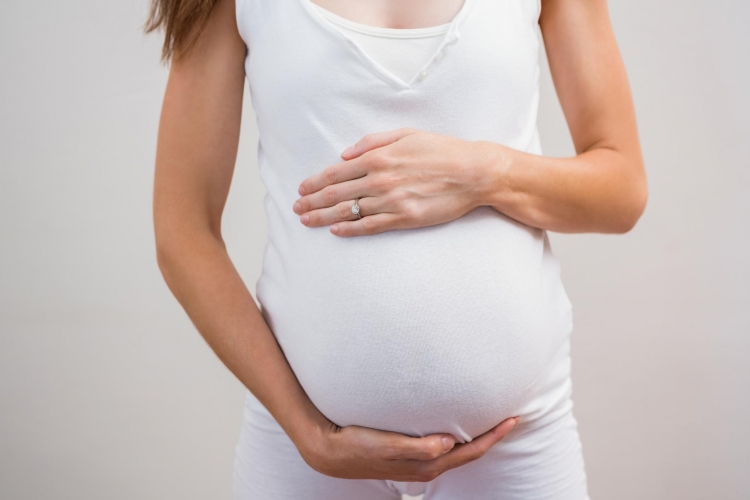Dental treatment during pregnancy

Many women are worried about visiting a dentist during pregnancy. Usually, they turn to their GP, a gynecologist, do a lot of medical tests, but a few of them turn to a dentist. Routine dental examinations as well as tartar and plaque cleaning are not only safe, but are also recommended and can be done at any time during pregnancy.
When is the best time for visiting the dental office during pregnancy?
- Infections are one of the risk factors for premature birth.
- The main goal of dental treatment during pregnancy is to influence oral infection so that the best time for routine dental procedures is the second trimester. The organogenesis has finished, nausea and vomiting have diminished or disappeared and the pregnant woman is able to lie comfortably on her back.
- However, if pregnant women experience pain, swelling or other oral problems, they should immediately seek dental care, no matter what stage they are in.
- Future mothers must share with their dentist that they are pregnant, inform them of the names and doses of the medications they receive and all the advice and recommendations given to them by the obstetrician or other specialist. This is important information that can change the treatment plan.
Which dental procedures should be avoided and not during pregnancy?
- It is generally advisable for future mothers to avoid large dental treatment during pregnancy.
- The second trimester and the beginning of the third trimester are the most suitable periods for treatment. Afterwards the pregnant may feel uncomfortable, lying on her back in a dental chair.
- Procedures that are not only safe but also recommended include removing plaque and tartar for prevention of gum disease associated with premature birth.
- Dental treatment during pregnancy is meant to eliminate oral cavity infections. All other procedures, such as teeth whitening and other cosmetic treatments, can be scheduled after birth.
- Let the pregnant woman discuss with her dentist, the problem that has arisen. He can best evaluate what the risks and benefits of treatment during pregnancy are or whether it can be postponed after birth.
Does the risk of caries and tooth sensitivity during pregnancy increase and what other changes in the oral cavity occur during this period?
In some cases, gums during pregnancy can react sharply to local irritants such as caries, protruding edges of fillings and crowns, large amounts of tartar and form "pregnancy tumors." They are benign and usually disappear after birth, but may need to be professionally removed by a dentist or a parodontologist.
Nausea and vomiting during the first trimester of pregnancy, eating foods and drinks with a high content of simple carbohydrates such as candy, cakes, biscuits, juices and soft drinks with added sugars lead to maintaining high levels of acidity in the mouth and increase the risk of caries and tooth sensitivity.
